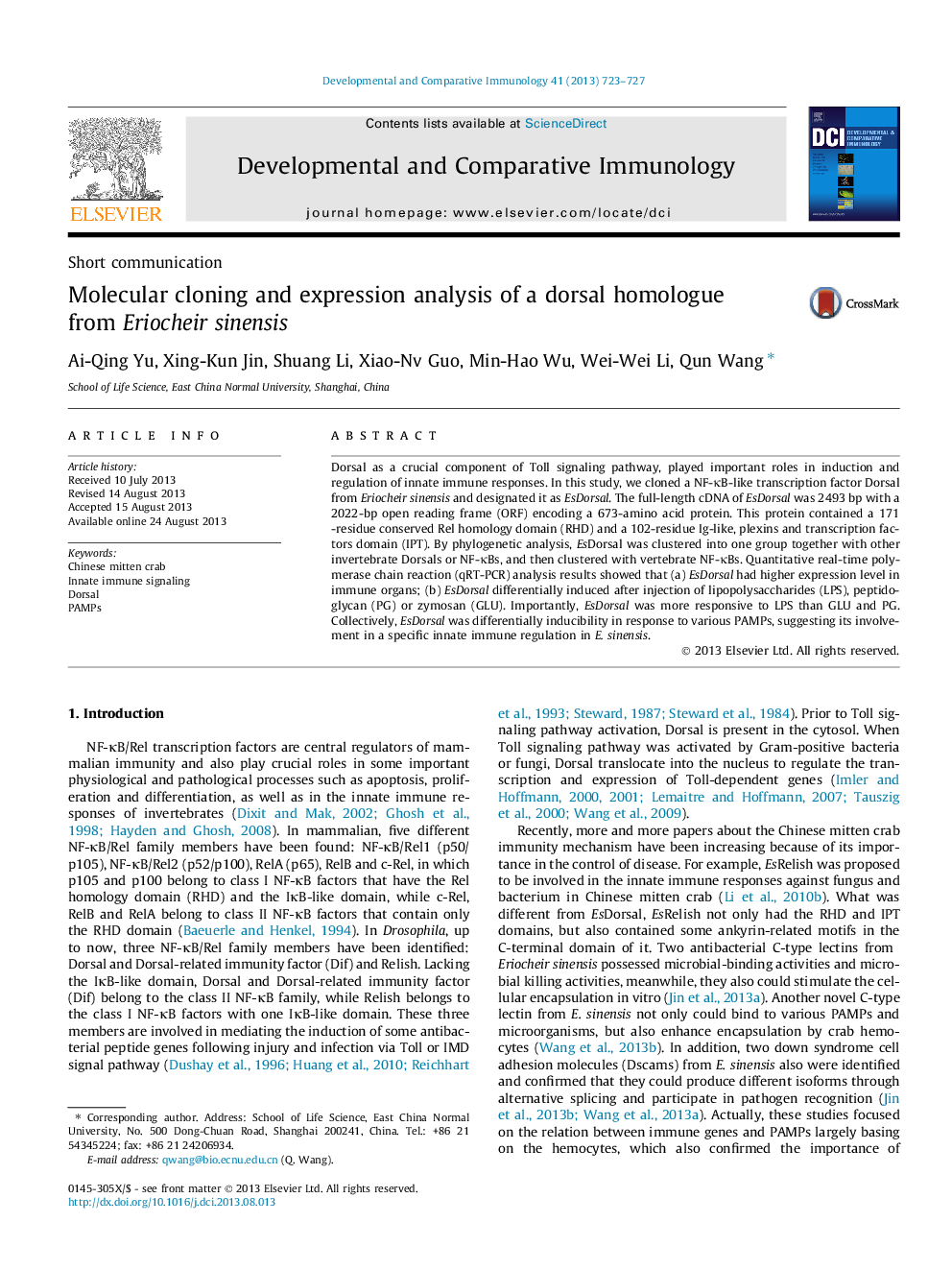| Article ID | Journal | Published Year | Pages | File Type |
|---|---|---|---|---|
| 10971622 | Developmental & Comparative Immunology | 2013 | 5 Pages |
Abstract
Dorsal as a crucial component of Toll signaling pathway, played important roles in induction and regulation of innate immune responses. In this study, we cloned a NF-κB-like transcription factor Dorsal from Eriocheir sinensis and designated it as EsDorsal. The full-length cDNA of EsDorsal was 2493 bp with a 2022-bp open reading frame (ORF) encoding a 673-amino acid protein. This protein contained a 171-residue conserved Rel homology domain (RHD) and a 102-residue Ig-like, plexins and transcription factors domain (IPT). By phylogenetic analysis, EsDorsal was clustered into one group together with other invertebrate Dorsals or NF-κBs, and then clustered with vertebrate NF-κBs. Quantitative real-time polymerase chain reaction (qRT-PCR) analysis results showed that (a) EsDorsal had higher expression level in immune organs; (b) EsDorsal differentially induced after injection of lipopolysaccharides (LPS), peptidoglycan (PG) or zymosan (GLU). Importantly, EsDorsal was more responsive to LPS than GLU and PG. Collectively, EsDorsal was differentially inducibility in response to various PAMPs, suggesting its involvement in a specific innate immune regulation in E. sinensis.
Related Topics
Life Sciences
Biochemistry, Genetics and Molecular Biology
Developmental Biology
Authors
Ai-Qing Yu, Xing-Kun Jin, Shuang Li, Xiao-Nv Guo, Min-Hao Wu, Wei-Wei Li, Qun Wang,
